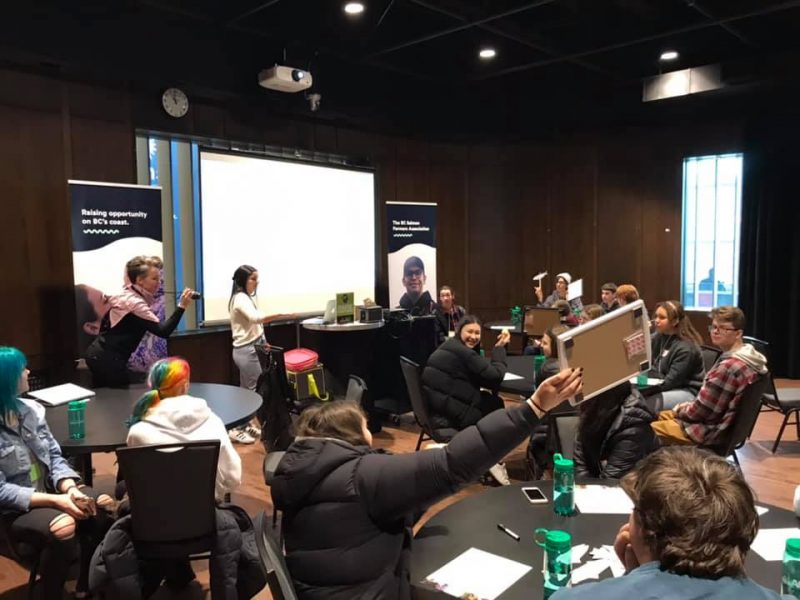Retake the narrative about aquaculture: expert
“We need to make sure that we are backed up with legitimate and unbiased facts when we put forth our belief that aquaculture is the answer to saving the oceans … not the threat.” – Dr. Hugh Mitchell
By Fabian Dawson
SeaWestNews
A globally recognised fish health expert is calling on the aquaculture industry to retake the narrative about farming the oceans saying “the risk to our future is too great if we don’t farm aquatic species”.
“The notion of how critical aquaculture is to both our seafood supply and saving our aquatic ecosystems is a right and just one,” said Dr. Hugh Mitchell, an aquaculture veterinarian who has been providing fish health tools to seafood farmers across the US and Canada for three decades.

In an article published by Aquaculture Magazine, Dr. Mitchell said: “stock enhancement aquaculture is absolutely essential for the maintenance of wild sport and commercial species.
“It is naive to think that wild habitat and ecosystems can be restored so that natural runs of salmon and other species will fully meet our expanding seafood demands, or that this trend can be curbed.
“We absolutely need both stock enhancement and “egg to fork” aquaculture. The narrative must be retaken and a litany of real science-backed, vivid messages, soundbites and memes generated, with a continual barrage to drive home the ideology that the risk to our future is too great if we don’t farm aquatic species.”
Dr. Mitchell who is a director of the Northwest Aquaculture Alliance (NWAA), said the anti-movement certainly seems to have a lot of time to volley a litany of fish farm hazards allegations.
“What is not genuine about their efforts is that they often use these unquantified “hazards” as reasons why a particular aquaculture industry should be banned, instead of framing the risks.
“A more constructive and genuine approach would be a call to get together, assess, and quantify real and perceived risks, and then work to mitigate the risks to as low as reasonably achievable and acceptable, instead of calling for the elimination of the hazard.
The unreasonable “Precautionary Principle” calls for “no risks are acceptable” or “prove the negative” and is not how society works.
“It is a rhetorical tactic, not a reasonable and workable one. We don’t eliminate automobiles or airplanes because they crash, we work at reducing the risks of accidents or the consequences of accidents.”
Dr. Mitchell’s call to action comes in the wake of a report by the Tofino-based anti-fish farm activist group, Clayoquot Action, which is filled with falsehoods about B.C.’s salmon farming industry .
“Combatting ideologies is a tough thing to do. Facts don’t matter without a good publicity campaign. And sometimes, with a good campaign, facts don’t matter either,” said Dr. Mitchell.
Dr. Mitchell said aquaculture proponents must promote their message more effectively and stave off this emerging anti-aquaculture sentiment.
But he warned fish farmers not to fall into confirmation bias as the anti-aquaculture activists seem to be doing.
“We need to make sure that we are backed up with legitimate and unbiased facts when we put forth our belief that aquaculture is the answer to saving the oceans … not the threat.
“We need to insist on and use legitimate and contextual metrics in order to make a case. We need to double check and challenge our own assumptions and biases. We have to admit when there are legitimate concerns. We should insist that scientific details are presented, not just rhetoric, and that we engage the detractors in addressing the risks of a hazard, not just calling for the elimination of that hazard.
“We like to take the high road and present all the good about aquaculture. Unfortunately, most of the “feel good” stories are not noticed.
“They don’t sell. So, what sticks out is the opposite – dirty laundry and risky stuff.
“The anti-aquaculturists know this and that is why there is a continual litany of bad press.
“They know that the more something is repeated, the more we tend to believe it, whether it is true or not.”
10 facts you need to know about British Columbia’s salmon farming industry

